Filter by

Facebook Democracy : The Architecture of Disclosure and the Threat to Public …
Drawing on a number of disciplines and an ethnographic analysis of 250 Facebook political groups, Marichal explores how Facebook's emphasis on social connection impacts key dimensions of political participation: e.g. mobilization, deliberation, and attitude formation.
- Edition
- -
- ISBN/ISSN
- 9781315581798
- Collation
- -
- Series Title
- -
- Call Number
- 650

Crowdsourced health :how what you do on the Internet will improve medicine
Most of us have gone online to search for information about health. What are the symptoms of a migraine? How effective is this drug? Where can I find more resources for cancer patients? Could I have an STD? Am I fat? A Pew survey reports more than 80 percent of American internet users have logged on to ask questions like these. But what if the digital traces left by our searches could show doct…
- Edition
- -
- ISBN/ISSN
- 9780262334808
- Collation
- 1 online resource (144 pages)
- Series Title
- -
- Call Number
- -

Mood and mobility :navigating the emotional spaces of digital social networks
We are active with our mobile devices; we play games, watch films, listen to music, check social media, and tap screens and keyboards while we are on the move. In Mood and Mobility, Richard Coyne argues that not only do we communicate, process information, and entertain ourselves through devices and social media; we also receive, modify, intensify, and transmit moods. Designers, practitioners, …
- Edition
- -
- ISBN/ISSN
- 9780262330893
- Collation
- 1 online resource (x, 378 pages)
- Series Title
- -
- Call Number
- -
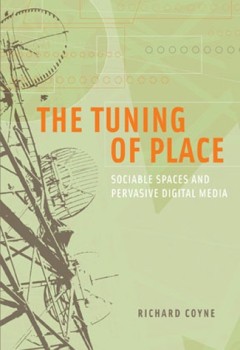
The Tuning of Place: Sociable Spaces and Pervasive Digital Media
- Edition
- -
- ISBN/ISSN
- 9780262265928
- Collation
- -
- Series Title
- -
- Call Number
- -
- Edition
- -
- ISBN/ISSN
- 9780262265928
- Collation
- -
- Series Title
- -
- Call Number
- -
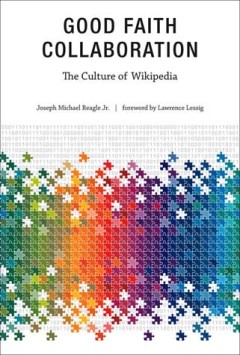
Good Faith Collaboration: The Culture of Wikipedia
Wikipedia, the online encyclopedia, is built by a community - a community of Wikipedians who are expected to "assume good faith" when interacting with one another. In Good Faith Collaboration, Joseph Reagle examines this unique collaborative culture;Wikipedia, says Reagle, is not the first effort to create a freely shared, universal encyclopedia; its early twentieth-century ancestors include Pa…
- Edition
- -
- ISBN/ISSN
- 9780262289719
- Collation
- -
- Series Title
- -
- Call Number
- -

Networked Publics
Looking at how maturing digital media and network technologies are transforming place, culture, politics and infrastructure in our everyday life this book provides a synoptic overview as well as illustrative case studies.;"Digital media and network technologies are now part of everyday life. The Internet has become the backbone of communication, commerce, and media; the ubiquitous mobile phone …
- Edition
- -
- ISBN/ISSN
- 9780262285483
- Collation
- -
- Series Title
- -
- Call Number
- -

Adaptive Governance: The Dynamics of Atlantic Fisheries Management
This title develops and applies an innovative theoretical framework that links domestic economic vulnerabilities to national policy positions and international management in the context of Atlantic fisheries.OCLC-licensed vendor bibliographic record.
- Edition
- -
- ISBN/ISSN
- 9780262285872
- Collation
- 1 online resource (xviii, 391 pages) :illustrations, map.
- Series Title
- -
- Call Number
- -
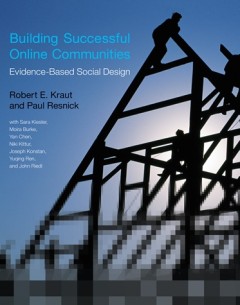
Building successful online communities: Evidence-based social design
Online communities are among the most popular destinations on the Internet, but not all online communities are equally successful. For every flourishing Facebook, there is a moribund Friendster—not to mention the scores of smaller social networking sites that never attracted enough members to be viable. This book offers lessons from theory and empirical research in the social sciences that ca…
- Edition
- -
- ISBN/ISSN
- 9780262298315
- Collation
- 1 online resource (xi, 309 pages) :illustrations
- Series Title
- -
- Call Number
- -
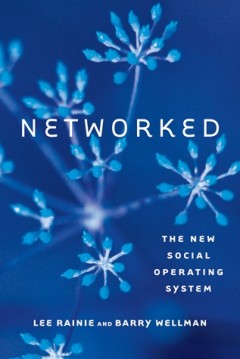
Networked: The new social operating system
Daily life is connected life, its rhythms driven by endless email pings and responses, the chimes and beeps of continually arriving text messages, tweets and retweets, Facebook updates, pictures and videos to post and discuss. Our perpetual connectedness gives us endless opportunities to be part of the give-and-take of networking. Some worry that this new environment makes us isolated and lo…
- Edition
- -
- ISBN/ISSN
- 9780262301190
- Collation
- 1 online resource (xiii, 358 pages) :illustrations
- Series Title
- -
- Call Number
- -
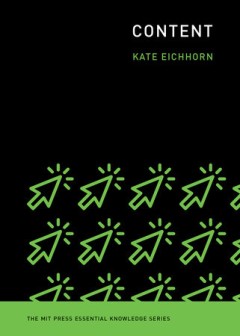
Content
"Eichhorn's EKS book will unpack the idea of content, whose emergence reflects a major shift in the way cultural products are produced and consumed, with far-reaching implications for society"--OCLC-licensed vendor bibliographic record.
- Edition
- -
- ISBN/ISSN
- 9780262368216
- Collation
- 1 online resource.
- Series Title
- -
- Call Number
- -
 Computer Science, Information & General Works
Computer Science, Information & General Works  Philosophy & Psychology
Philosophy & Psychology  Religion
Religion  Social Sciences
Social Sciences  Language
Language  Pure Science
Pure Science  Applied Sciences
Applied Sciences  Art & Recreation
Art & Recreation  Literature
Literature  History & Geography
History & Geography